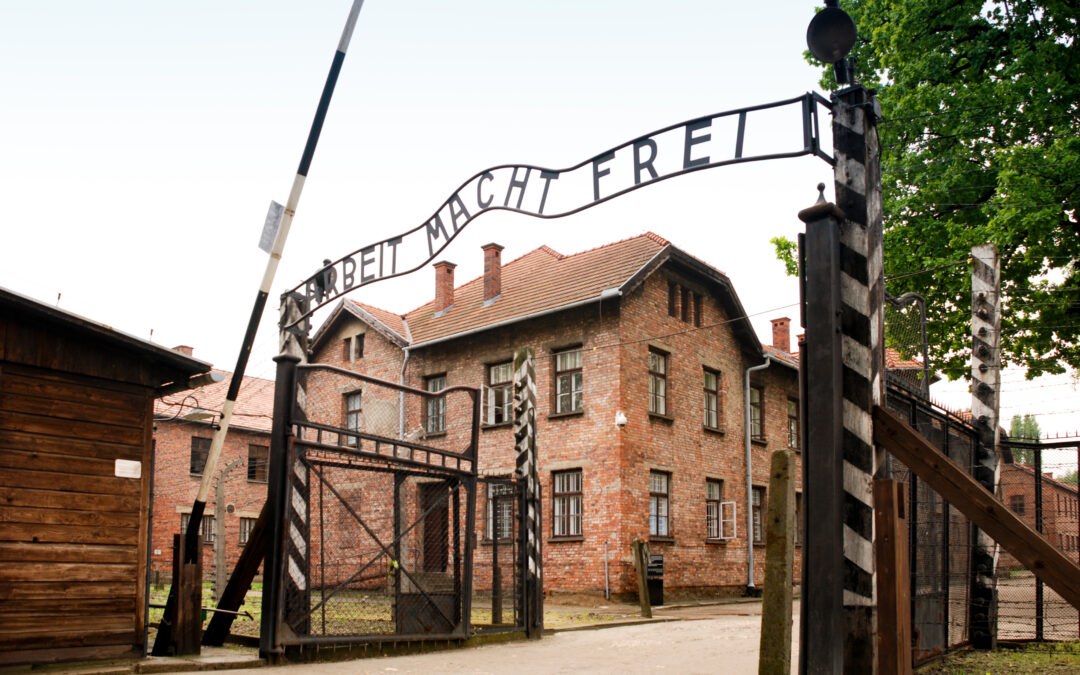One in five Poles say that it is a good thing that the Second World War led to fewer Jews living in Poland, according to a new study, published to mark Holocaust Remembrance Day.
The survey also revealed that certain antisemitic stereotypes remain widespread in Poland, and that many Poles’ knowledge about the Holocaust is limited.
The survey was conducted by CBOS, a state-linked pollster, as part of a project on the Polish social memory of Auschwitz run by scholars at the Jagiellonian University in Kraków and financed by the National Science Centre (NCN), a Polish state body for funding academic research.
The study revealed that certain negative attitudes towards Jews are still present in Poland. For instance, 19% of the respondents agreed with the statement that “war is a horrible thing, but it is good that it resulted in fewer Jews in Poland”. A large majority, 71%, disagreed, however.
The first figure is “horrifying”, Marek Kucia, a professor of sociology at the Jagiellonian University who oversaw the research, told OKO.press.
Meanwhile, 11% of respondents supported the statement that “Jews had so many troubles during the war because God punished them for crucifying Christ”. A majority (55%) agreed that today “Jews have too much influence in the world” and 28% that “Jews have too much influence on Polish political life”.
The findings echo an international study on antisemitism published in 2019, in which 56% of Poles said that Jews have “too much power” in business and finance. Attitudes classified as anti-Jewish were more common in Poland than in any of the other 17 countries surveyed.
The new CBOS data also confirm previous findings showing gaps in Polish public knowledge about the Holocaust. For example, almost 20% of respondents claimed that more Poles died at Auschwitz than Jews, reports the Polish Press Agency (PAP).
In fact, while around 70,000 ethnic Poles died at the camp, Jews – one million of whom died at Auschwitz – made up over 90% of its victims. Just over half of those surveyed by CBOS correctly stated that more Jews were killed there than Poles.
Only 11% of Poles were able to correctly identify the number of Jews killed in the Holocaust (around 6 million). Over 40% significantly underestimated the number of Polish Jews that died during the war, notes OKO.press.
“Poles generally do not know how many Jews died in the Holocaust,” Kucia told Catholic news agency KAI. But “almost all share the universalist meaning of Auschwitz as a symbol of total evil, a symbol of genocide”.
The researchers also asked about the role Poles played during Holocaust. They found that over 80% of Poles believe that their compatriots helped Jews “as much as they could”, while only 14% admitted that they could have done more.
Commenting on the findings, Kucia noted that “few Poles today deny the complicity of our ancestors in the extermination of the Jews…but half [try to] justify complicity in the Holocaust”.
The study found that exactly 50% believe that Polish involvement in the killing of Jews happened “only under duress and fear of the Germans”. Over 60% said that they get angry when someone speaks about wartime crimes committed by Poles against Jews, notes Kucia.
“These are not surprising results,” the sociologist told OKO.press. “They show how Poles perceive themselves as a nation of righteous people.”
Kucia also notes that the findings “mirror the government’s line of presenting Poles as those who rescued Jews and did all that was possible. We can clearly see here the influence of the historical policy of the…ruling party.”
A recent report by the International Holocaust Remembrance Alliance, cited by PAP, warns that distortions of facts concerning the Holocaust – such as downplaying the number of victims or finding excuses for perpetrators and collaborators – can be as dangerous as Holocaust denial.
The survey was conducted between 21 September and 25 November 2020 on a random sample of 1,522 people representative of Poland’s population between the ages of 15 and 79. It was conducted by the Centre for Public Opinion Research (CBOS) using a methodology of personal interviews, internet surveys and telephone interviews.
Main image credit: xiquinhosilva/Wikimedia Commons (under CC BY 2.0)

Agnieszka Wądołowska is deputy editor-in-chief of Notes from Poland. She is a member of the European Press Prize’s preparatory committee. She was 2022 Fellow at the Entrepreneurial Journalism Creators Program at City University of New York. In 2024, she graduated from the Advanced Leadership Programme for Top Talents at the Center for Leadership. She has previously contributed to Gazeta Wyborcza, Wysokie Obcasy and Duży Format.




















